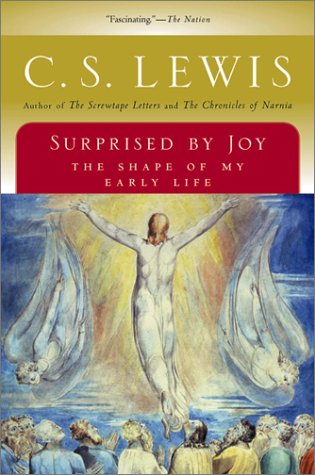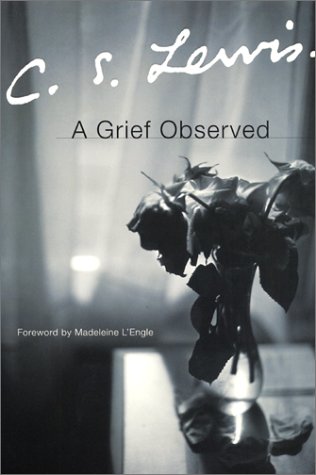"If we consider the unblushing promises of reward and the staggering nature of the rewards promised in the Gospels, it would seem that Our Lord finds our desires, not too strong, but too weak... We are half-hearted creatures, fooling about with drink and sex and ambition when infinite joy is offered us, like an ignorant child who wants to go on making mud pies in a slum because he cannot imagine what is meant by the offer of a holiday at the sea." [emphasis added] / Also interesting :)
"Poetry replaces grammar, gospel replaces law, longing transforms obedience, as gradually as the tide lifts a grounded ship."
I think this is such a masterful simile, because not only does it accomplish the purpose of showing what it is like, it also gives us the imagery of being lifted, and gently compares us to a grounded ship that must be lifted if it is to go anywhere.
"If a transtemporal, transfinite good is our real destiny, then any other good on which our desire fixes must be in some degree fallacious, must bear at best only a symbolical relation to what will truly satisfy."
This reminds me of a few ideas from other teachers - firstly, the idea of "good, better, best" and that we have to forego some good things in order to choose others that are better or best because they develop faith in the Lord Jesus Christ and strengthen our families. Secondly, this quote by William Law: "If you have not chosen the kingdom of God first, it will in the end make no difference what you have chosen instead." I think this same idea is expressed by Lewis in The Great Divorce when he gives the example of the woman who loved her son in place of God.
Lewis offers, in beautiful prose, a description of the desire he hints at in so many other works: "I am trying to rip open the inconsolable secret in each one of you... the secret we cannot hide and cannot tell, though we desire to do both. We cannot tell it because it is a desire for something that has never actually appeared in our experience. We cannot hide it because our experience is constantly suggesting it, and we betray ourselves like lovers at the mention of a name. Our commonest expedient is to call it beauty and behave as if that had settled the matter. Wordsworth’s expedient was to identify it with certain moments in his own past. But... if Wordsworth had gone back to those moments in the past, he would not have found the thing itself, but only the reminder of it; what he remembered would turn out to be itself a remembering. The books or the music in which we thought the beauty was located will betray us if we trust to them; it was not in them, it only came through them, and what came through them was longing... For they are not the thing itself; they are only the scent of a flower we have not found, the echo of a tune we have not heard, news from a country we have never yet visited."I think this is so beautiful... it does rip open the inconsolable secret in me.
Lewis goes on to write about this country we long for so much, and what it will be like.
"The promises of Scripture may very roughly be reduced to five heads. It is promised, firstly, that we shall be with Christ; secondly, that we shall be like Him; thirdly, with an enormous wealth of imagery, that we shall have “glory”; fourthly, that we shall, in some sense, be fed or feasted or entertained; and, finally, that we shall have some sort of official position in the universe—ruling cities, judging angels, being pillars of God’s temple."It is interesting to consider these promises of Heaven and how it relates to LDS beliefs. In fact, when I read the Gospel Principles lesson on Exaltation it also gave me five blessings given to exalted people:
1. They will live eternally in the presence of Heavenly Father and Jesus Christ (see D&C 76:62) 2. They will become gods (seeD&C 132:20–23). 3. They will be untited eternally with their righteous family members and will be able to have eternal increase. 4. They will receive a fulness of joy. 5. They will have everything that our Heavenly Father and Jesus Christ have - all power, glory, dominion, and knowledge.(see D&C 132:19–20). President Joseph Fielding Smith wrote: "The Father has promised through the Son that all that he has shall be given to those who are obedient to His commandments. They shall increase in knowledge, wisdom, and power, going from grace to grace, until the fulness of the perfect day shall burst upon them" (italics in original).
The first two and the fourth especially seem to be right in line with what Lewis is proposing. Interesting. :)
But now back to Lewis' thoughts. What is meant by "glory"?
"Not fame conferred by our fellow creatures—fame with God, approval or (I might say) "appreciation’ by God. And then, when I had thought it over, I saw that this view was scriptural; nothing can eliminate from the parable the divine accolade, “Well done, thou good and faithful servant.” With that, a good deal of what I had been thinking all my life fell down like a house of cards. I suddenly remembered that no one can enter heaven except as a child; and nothing is so obvious in a child—not in a conceited child, but in a good child—as its great and undisguised pleasure in being praised... And that is enough to raise our thoughts to what may happen when the redeemed soul, beyond all hope and nearly beyond belief, learns at last that she has pleased Him whom she was created to please... To please God...to be a real ingredient in the divine happiness...to be loved by God, not merely pitied, but delighted in as an artist delights in his work or a father in a son—it seems impossible, a weight or burden of glory which our thoughts can hardly sustain. But so it is." [emphasis added]This so perfectly describes what I want so badly but can hardly dare to hope for.
I like the one-liner: "By ceasing for a moment to consider my own wants I have begun to learn better what I really wanted." It makes me think. About nothing thinking about myself so much. :)
And this idea: "To be at last summoned inside would be both glory and honour beyond all our merits and also the healing of that old ache." :)
"We do not want merely to see beauty, though, God knows, even that is bounty enough. We want something else which can hardly be put into words—to be united with the beauty we see, to pass into it, to receive it into ourselves, to bathe in it, to become part of it. That is why we have peopled air and earth and water with gods and goddesses and nymphs and elves—that, though we cannot, yet these projections can, enjoy in themselves that beauty grace, and power of which Nature is the image... For if we take the imagery of Scripture seriously, if we believe that God will one day give us the Morning Star and cause us to put on the splendour of the sun, then we may surmise that both the ancient myths and the modern poetry, so false as history, may be very near the truth as prophecy."^ Here we see again Lewis' love of myth as a way of bringing us to Christ and truth :)
"At present we are on the outside of the world, the wrong side of the door. We discern the freshness and purity of morning, but they do not make us fresh and pure. We cannot mingle with the splendours we see. But all the leaves of the New Testament are rustling with the rumour that it will not always be so. Some day, God willing, we shall get in."I love this idea and the imagery with which he describes it - leaves "rustling" just makes me so excited!
"When human souls have become as perfect in voluntary obedience as the inanimate creation is in its lifeless obedience, then they will put on its glory, or rather that greater glory of which Nature is only the first sketch." This sort of reminds me of the LDS idea that everything is to fill the measure of its creation. We are here to be obedient, just as nature obeys God and so fulfills the nature of its creation. We, unlike God's other creations, have agency. We can choose whether or not we will obey. But if we choose to be what we were made to be, we will be "crowned with glory, even with the presence of God the Father" {source}.
And finally, Lewis' concluding paragraph. It was so good I had to copy almost all of it down here. :)
"It may be possible for each to think too much of his own potential glory hereafter; it is hardly possible for him to think too often or too deeply about that of his neighbour. The load, or weight, or burden of my neighbour’s glory should be laid daily on my back, a load so heavy that only humility can carry it, and the backs of the proud will be broken. It is a serious thing to live in a society of possible gods and goddesses, to remember that the dullest and most uninteresting person you talk to may one day be a creature which, if you saw it now, you would be strongly tempted to worship, or else a horror and a corruption such as you now meet, if at all, only in a nightmare. All day long we are, in some degree, helping each other to one or other of these destinations. It is in the light of these overwhelming possibilities, it is with the awe and the circumspection proper to them, that we should conduct all our dealings with one another, all friendships, all loves, all play, all politics. There are no ordinary people. You have never talked to a mere mortal... Our charity must be a real and costly love, with deep feeling for the sins in spite of which we love the sinner... Next to the Blessed Sacrament itself, your neighbour is the holiest object presented to your senses. If he is your Christian neighbour he is holy in almost the same way, for in him also Christ vere latitat—the glorifier and the glorified, Glory Himself, is truly hidden." [emphasis added] {vere latitat means "truly hides. :)}
Read the entire essay here :)














No comments:
Post a Comment